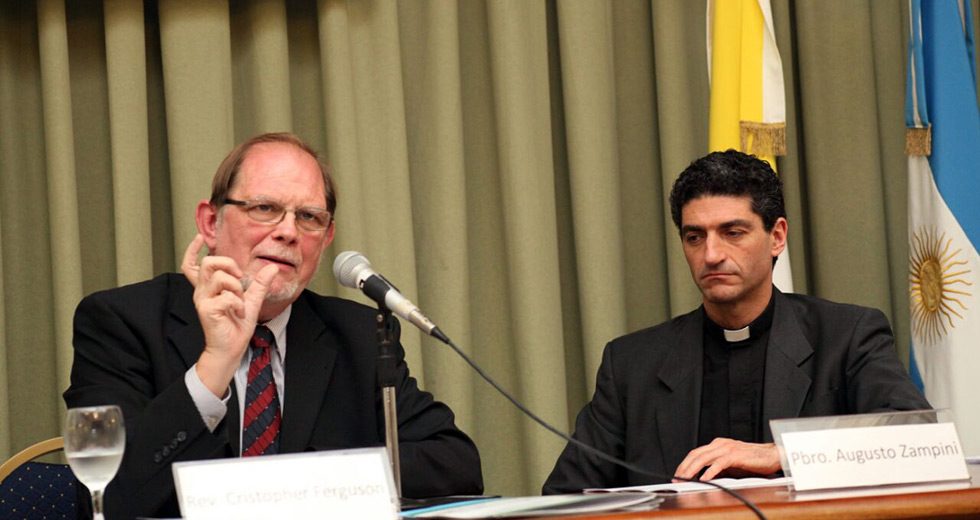Second “ethics and economy” dialogue prepares for G20 in Argentina
Posted on November 3, 2017 by Phil Tanis

A second high-level dialogue continues preparations for advocacy leading up to and during the G20 meeting in 2018 in Buenos Aires, Argentina.
Religious leaders, theologians, economists, experts in multilateral development agencies and academics are participating and debating the three core topics that are the center of the G20 meeting: sustainable finances, dignified labour and inclusive development.
At an opening session Chris Ferguson, general secretary of the World Communion of Reformed Churches (WCRC), criticized theologies that endorse a system that says there are no alternatives.
“If we believe in the God of Life we have to define ourselves,” Ferguson said. “We must say ‘no’ to any economic system that puts the accumulation of capital above the value of life.”
The dialogue is generating input for the creation of an advocacy document before the G20 meeting with recommendations and contributions for the promotion of an integral human development model. It will incorporate the knowledge and experience of communities of faith, religious organizations and other faith-based organizations in Latin America and the Caribbean that are working for the accomplishment of the 2030 Agenda of Sustainable Development Objectives.
“Finance has been dehumanized,” said Javier Gonzalez Fraga, president Banco Nación. “Let us not let the financiers and economists decide the value of the planet. We cannot let the economic logic decide on the value of the planet, because this logic is far from the focus of the common good.”
The gathering has four panels dedicated to the analysis of the following topics:
1. Sustainable Finances and Inclusive Development
2. Ethics and Economics: The challenge of integral human development
3. The Future of Labor and Social Protection Systems
4. The Agenda of Sustainable Development in the Region: Balances and challenges
5. Sustainable Development: Interfaith Alliance and the G20 Interfaith Group
“We seek to collaborate with alternative models of development,” said Augusto Zampini, director of faith and development of the Dicastery of Integral Development of the Vatican. “For this the Catholic Church wants to have alliances with other churches and groups that promote a systemic change and a development model that is capable of generating paths of peace.”
Other religious leaders at the 2-3 November meeting include Dora Arce-Valentin, WCRC executive secretary for justice and partnership; Carola Tron Urban, president of the Waldensian Evangelical Church of the River Plate, and Jorge Lozano, president of the Episcopal Commission of the Social Pastoral of Argentina (CEPAS).
The dialogue includes the participation of the Secretariat for Latin America and the Caribbean of the Social Pastoral – Cáritas (SELACC), the Department of Justice and Solidarity of the Latin American Episcopal Advisory Board (DEJUSOL-CELAM), the International Program on Democracy, Society and New Economics of the University of Buenos Aires (PIDESONE-UBA/Seube), the Regional Ecumenical Center (CREAS) and the World Network of Ethics (GLOBETHICS).
Representatives from the Think Tank of G20 (T20), the Ministry of Social Development, the Secretariat of Worship of the Argentine Republic, the United Nations Development Programme (PNUD), the Institute for the Integration of Latin America and the Caribbean of the Inter-American Development Bank (BID) are also participating in the event.
 World Communion of Reformed Churches
World Communion of Reformed Churches